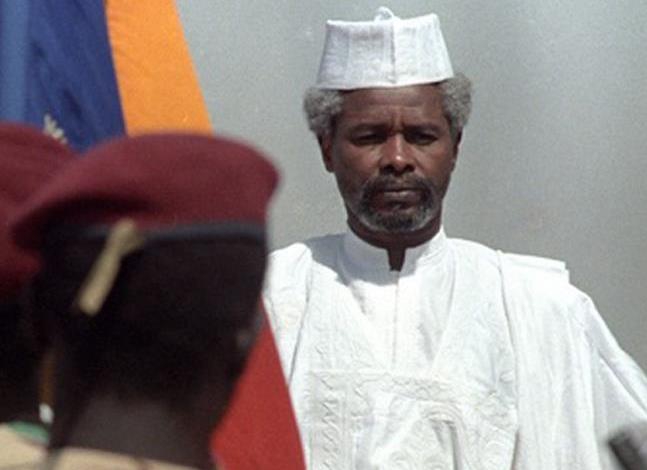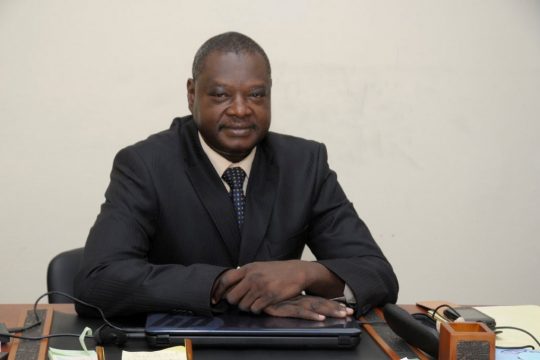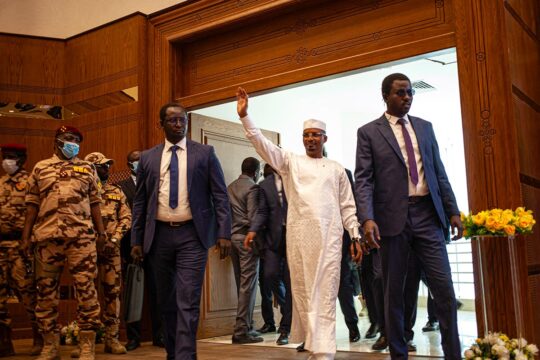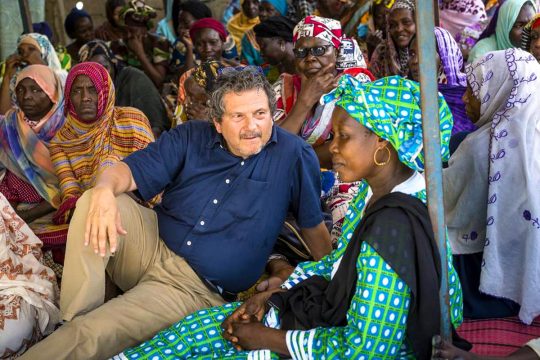Hardly a day after the spectacular opening of former Chadian president Hissène Habré’s war crimes trial before the Extraordinary African Chambers (EAC) in Dakar, it was on Tuesday postponed to September 7 to give his new court-appointed lawyers time to study the case files.
This delay is likely to upset the planning of the EAC, which is funded by the international community and was counting on finishing the trial by October.
Habré, who has been in exile in Senegal for over 20 years and held in a Dakar jail since July 2013, is charged with crimes against humanity, war crimes and acts of torture committed under his regime.
The former president is being tried by a special court created within the Senegalese justice system under an agreement between Dakar and the African Union. The court has a mandate to try serious violations of international humanitarian law committed in Chad from 1982 to 1990.
The postponement was predictable. On Monday, after an eventful first day, the EAC court presided by Judge Gberdao Gustave Kam of Burkina Faso ordered Habré, who was refusing to appear, to be brought to court on Tuesday “by the public security forces”.
François Serres, one of the defence lawyers approved by the former president, slammed this decision, saying it was a “militarization” of the proceedings.
“President Habré is being consistent,” he told JusticeInfo.Net in one of the rooms of the Justice Palace in Dakar. “He cannot appear before judges who have already decided to convict him.”
The French lawyer, dressed in civilian clothes without his gown, boycotted the hearing, like his client.
When hearings resumed on Tuesday morning Habré, dressed all in white as usual and brought by force as ordered by the judges the day before, was sitting in court.
“I call Mr. Hissène Habré to the witness box,” began Judge Kam. The Accused, who was nevertheless sitting opposite the judge, surrounded by his prison guards, did not say a word and did not even stand up.
“Are there any defence lawyers here?” the presiding judge then asked, then coming himself to the conclusion that “I do not see any”.
“According to the law, we are therefore obliged to assign lawyers to represent the interests of Mr. Hissène Habré,” the presiding judge concluded. He then withdrew briefly from the courtroom with his two Senegalese assessors.
The court reconvened a few minutes later to announce the names of three lawyers from the Senegalese Bar that it was assigning to the defendant.
“Cowardly defence”
The judges withdrew a second time, this time accompanied by the three assigned lawyers.
They then came back to announce that they were granting the three court-appointed lawyers 45 days “to allow them to familiarize themselves with the whole of the case file”. “The trial is therefore suspended and will resume on September 7,” said Judge Kam.
But the civil parties think this postponement only serves the interests of the Accused. “Mr. Hissène Habré’s chosen defence strategy is cowardly with regard to the victims,” lawyer William Bourdon told the court. “He and his defence team are trying to take justice hostage.” He also asked the court to ask Habré if he was going to reject the court-assigned lawyers or not.
“He is making a mockery of your court. I appeal to your conscience to question Mr. Hissène Habré on this,” the French lawyer continued, accusing the former president of “spitting on the judges and the victims”.
Taking his turn to speak, Prosecutor Mbacké Fall said he “shares the concerns of the civil parties”. “It is highly likely that Mr. Hissène Habré is not going to talk to these lawyers, because he does not recognize this court,” Fall said.
However, unlike the civil parties, the Prosecutor deemed that it was not up to Habré to say whether or not he recognized the court-assigned lawyers, saying they had been assigned only in the interests of justice.
Speaking for the Chamber, Judge Kam explained that the 45 days requested by the court-assigned lawyers was the minimum considering that the investigating magistrates’ work had taken 19 months. “We, the Chamber, want a fair trial, whether or not the court-assigned lawyers have the cooperation of Mr. Hissène Habré or not,” the judge said.
Before adjourning the hearings, he added that the four prosecution witnesses who were ready to testify would be recalled later.
The Accused then left, escorted by his guards, greeting with a gesture of his hand members of his family and entourage present in court.
Questioned afterwards, Mounir Ballal, one of the court-assigned lawyers, said he thought the assignment was “in line with Senegalese law”. “This is a criminal case, and the assignment of lawyers is necessary,” he said. “If Mr. Hissène Habré should refuse to recognize me as his lawyer, that will not prevent me from doing my job. There is no problem with ethics, it is in line with the sacrosanct principle of the right to a defence.”








